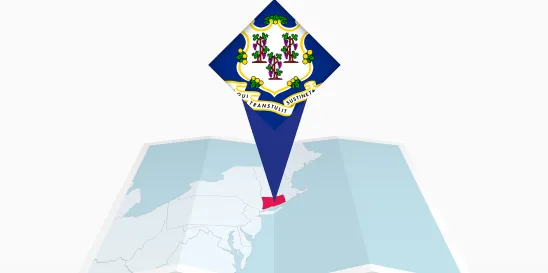On January 4, 2024, Connecticut Banking Commissioner Jorge L. Perez issued a temporary order to cease and desist against LoanSnap, Inc., ordering LoanSnap to cease and desist certain activities and notifying LoanSnap that its state mortgage lender license will be revoked and a civil money penalty will also be issued against it. The charges against the California-based mortgage lender include alleged violations of the Truth in Lending Act and the Fair Credit Reporting Act, but the crux of the banking commissioner’s findings center in large part on unlicensed origination activities.
According to the allegations, department examiners discovered that from at least August 29, 2022, to December 2, 2022, LoanSnap employed individuals who were not licensed as mortgage loan originators in Connecticut yet acted as mortgage loan originators by taking residential mortgage loan applications, soliciting Connecticut borrowers for residential mortgage loans, and offering or negotiating terms of residential mortgage loans. These unlicensed mortgage loan originators worked in out-of-state call centers and their titles were described as “sales development representatives” or “call center representatives.” According to the order, LoanSnap employed a business model by which the bulk of its origination work in Connecticut was performed by unlicensed mortgage loan originators. Notably, the banking commissioner described these practices as “systemic” in nature despite the somewhat short period of time over which the alleged violations occurred.
The order is also noteworthy for the Connecticut Department of Banking’s analysis and review of LoanSnap’s call center employees’ social media activities. Specifically, the commissioner alleged that one non-licensed employee maintained a LinkedIn profile identifying herself as a “mortgage loan officer,” while other non-licensed employees’ LinkedIn profiles included statements such as “Prequalified inbound leads for the Senior Mortgage Loan Officers – over 100 calls per day” and “…I was the connection point between potential mortgage and refi-takers, and was responsible for navigating a conversation to ensure a product available and beneficial to a customer. Sale technique, conversation guiding, ability to follow script, and ability to accurately qualify customers was key to success.” These representations were important in the examination and subsequent order against LoanSnap because Connecticut law provides that an individual is deemed to be engaged in the business of a mortgage loan originator if he or she “makes any representation to the public through advertising or other means of communication that such individual can or will act as a mortgage loan originator on behalf of a licensee.” Also of significance was the commissioner’s allegation that LoanSnap’s conduct triggered the Connecticut SAFE Act provisions regarding character and general fitness and operating honestly, fairly and efficiently.
While the at-issue order does not constitute a final determination, LoanSnap is now facing the revocation of its mortgage lender license in Connecticut without renewal, a civil money penalty, and the requirement to comply with the current terms of the associated cease and desist. This order serves as an important reminder that the use of call centers in mortgage loan origination, as well as other remote activities in mortgage loan origination that have become more commonplace over the past several years, carry certain compliance risks. To that end, it is worth considering that unlicensed employees engaged in consumer-facing communications related to mortgage loan originations should be thoroughly educated and trained with respect to federal and state licensing laws, particularly to ensure that these employees understand which activities require formal licensing, as well as the consequences for failure to comply. Another important takeaway here is the use of social media activity as evidence of certain violations of law – which, like remote activities, is a newer risk for the industry. It is worth considering internal policies, procedures, and practices regarding social media usage, and in particular, whether employee social media usage is increasing associated regulatory risk in mortgage loan originations.





 />i
/>i
